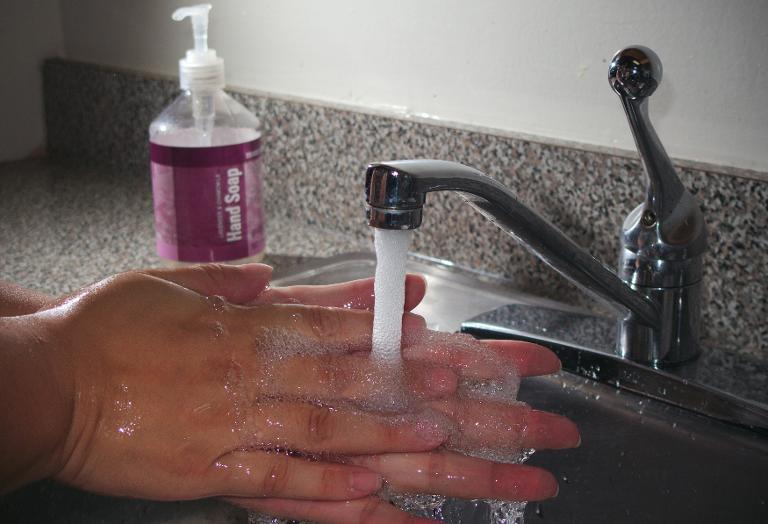
US calls for safety review of antibacterial soaps
(MENAFN- AFP) In response to health concerns over the widespread use of antibacterial soaps, US manufacturers will soon have to meet stricter requirements showing long-term safety, regulators said Monday.
Antibacterial soap-makers would also have to show that their products are better than plain soap at preventing illness and the spread of infections, said the proposed rule by the US Food and Drug Administration.
Antibacterial hand and dish soaps typically contain the chemicals triclosan and triclocarban, "which may carry unnecessary risks given that their benefits are unproven," the FDA said in a statement.
As many as 2,000 such soap products containing triclosan are for sale on the US market, an FDA spokeswoman said.
The chemical has been on the market for 40 years and is also present in toothpastes, household cleaning products, plastics and cosmetics.
Some studies have shown triclosan may affect thyroid, estrogen, and testosterone function in lab animals, and that it may boost resistance to common antibiotics.
"New data suggest that the risks associated with long-term, daily use of antibacterial soaps may outweigh the benefits," said Colleen Rogers, a lead microbiologist at FDA.
Sandra Kweder, deputy director of the FDA's Office of New Drugs, told reporters that some laboratory studies have shown that bacteria exposed to these products change their resistance pattern.
"What we don't understand is how that -- specifically related to these products -- is operative in the real world, or say in the home of a family that uses these products regularly," she said.
"We are hopeful that there are researchers out there who have actually looked at some of these questions."
Manufacturers have until the end of 2014 to submit the results of clinical trials on their products, and the rule will be finalized in 2016, the FDA said.
The new requirements do not affect hand sanitizers, which are alcohol-based and do not require the use of water, or antibacterial products used in hospitals.
Triclosan is "a global problem that has reached critical proportions," said Luz Fonacier, head of allergy and immunology at Winthrop-University Hospital in Mineola, New York.
"Simply washing thoroughly with plain soap is sufficient to reduce bacteria and is effective against viruses."
The FDA changes also do not mean antibacterial soaps products would vanish from the store shelves any time soon.
Instead, manufacturers that fail to meet the stricter safety requirement may either remove the antibacterial active ingredients or relabel their products to remove any antibacterial claims.
The American Cleaning Institute, which represents the $30 billion US cleaning products market, said manufacturers have provided "significant" research to the FDA over the past two decades showing the products work better than regular soap and are safe.
"We are perplexed that the Agency (FDA) would suggest there is no evidence that antibacterial soaps are beneficial," Brian Sansoni said in a statement sent to AFP.
"Industry will continue to operate in good faith to submit any new data that is available."
Senator Edward Markey, a Democrat from Massachusetts who has called for a ban on products containing triclosan, hailed the FDA move.
"It is time to ban the use of triclosan in consumer soaps and hand-washes, products intended for use by children, and products intended to come into contact with food," he said in a statement.
Triclosan is a source of controversy in Europe as well, though it has not been banned from consumer care products there.
A committee of European Union scientists issued a paper in 2009 that said concentrations higher than 0.3 percent in soaps and cosmetics are "not safe for the consumer because of the magnitude of the aggregate exposure."
The group also said questions remain about its impact on microbial resistance, and recommended "prudent" use.
In the United States, some toothpastes and mouthwashes also contain triclosan, as it has been shown to help prevent the gum disease gingivitis, the FDA said.

Legal Disclaimer:
MENAFN provides the
information “as is” without warranty of any kind. We do not accept
any responsibility or liability for the accuracy, content, images,
videos, licenses, completeness, legality, or reliability of the information
contained in this article. If you have any complaints or copyright
issues related to this article, kindly contact the provider above.


















Comments
No comment